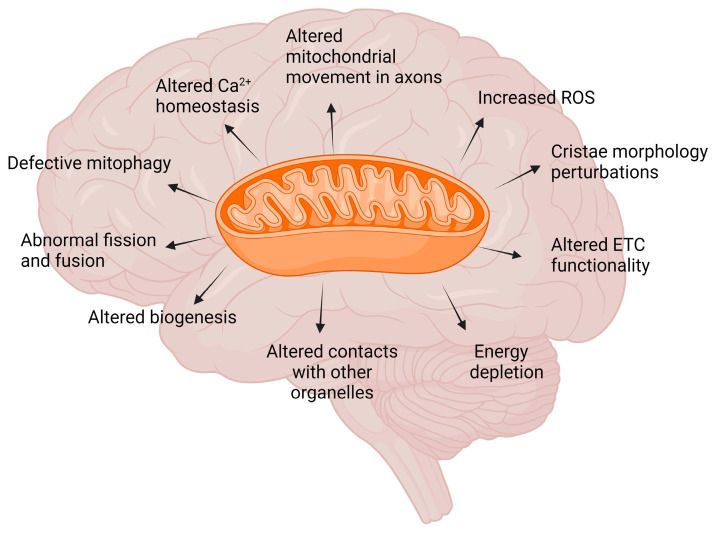Figure 1.
Mitochondrial dysfunction in neurodegenerative disorders. Mitochondria play a central role in cellular metabolism and function and are highly dynamic organelles that respond to environmental stimuli, activating fission, fusion, and mitophagy process. This is particularly important for high-energy-demanding cells as neurons. Several mitochondria abnormalities are characterised by a loss of efficiency in the electron transport chain (ETC) and dysfunction in ATP synthesis machinery, leading to energy depletion and impaired mitochondrial movement in axons. Reactive oxygen species (ROS) are a consequence of the electron transport process, produced as a by-product of oxidative phosphorylation. Mitochondria dysfunction is also linked to defective communication with other cellular organelles and consequent altered Ca2+ homeostasis, which could further exacerbate mitochondria damage. Mitochondria dysfunction has been documented in cellular and animal models for NDs as early sign, before the appearance of neurodegenerative phenotype; however, altered mitochondria morphology, cristae organisation, and mitochondria distribution have also been found in postmortem brain of patients. Created with BioRender.com.

